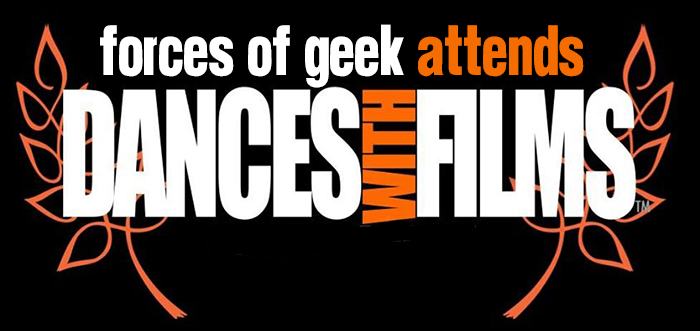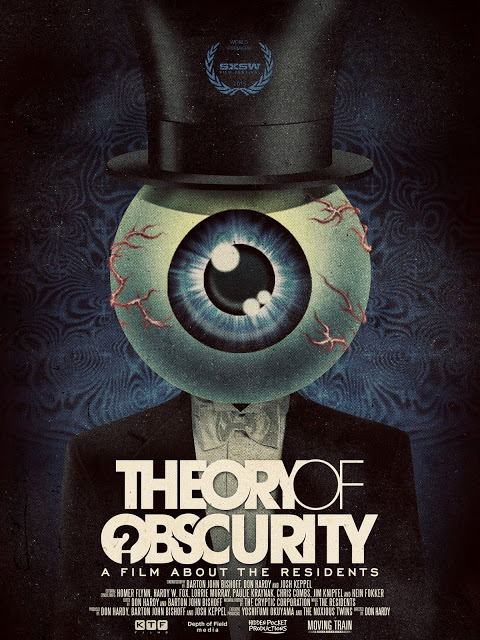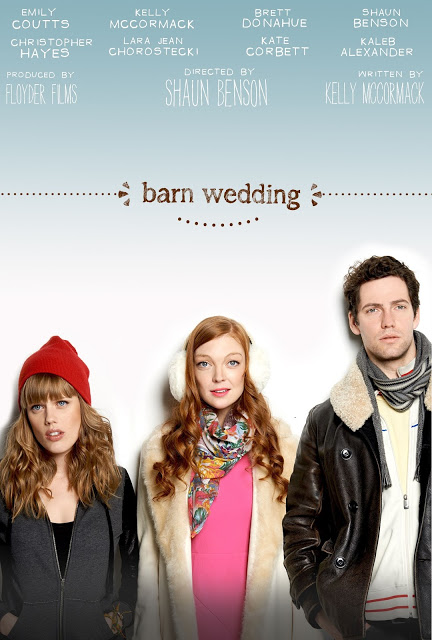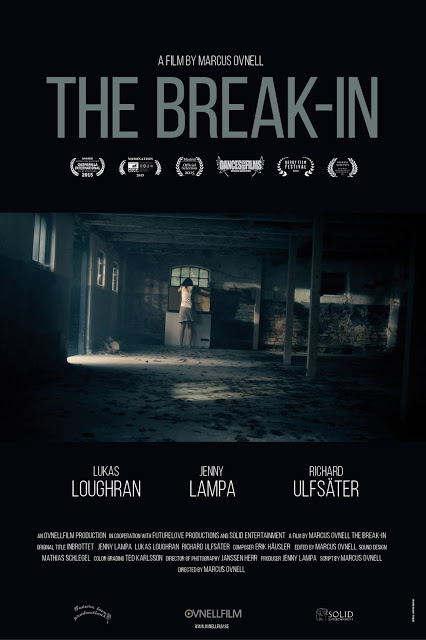 |
| By Lily and Generoso Fierro |
As recent immigrants to Los Angeles from Boston, we have been basking in the wide array of film options here during our first month here. Many nights have been spent admiring the majestic edifice and classic programming of the historic Egyptian Theater and the comfy confines of The Silent Film Theater and the beautifully cultish Cinefamily programming to the 1st run art house offerings of the Sundance Theater on Sunset, there is always something on a screen that will pull us out of the house on any night of the week.
Shortly before our arrival here, we spent our final week in our former home gorging on new films at The Independent Film Festival of Boston, the premiere film festival in the city run by a talented and sweet staff of dedicated volunteers. The quality of the films this year was high as usual and they premiered more than a few films that will rank high on our best of lists for the year. Coming from such a positive festival experience, and excited to be living in such a vibrant film community here in Southern California, we were thrilled to get the chance to attend and cover our first film festival here in Los Angeles, the 18th Annual Dances With Films Festival which was held at the Chinese Six Theaters located next to the landmark that is the formerly named “Mann’s Chinese Theater,” now the TLC Chinese Theater in Hollywood from May 28th to June 7th.
Since 1998, the Dances With Films Festival (their name being a play on the mass of festivals that end in “dance”) has boasted a “strong commitment to indie films.” And unlike the other indie film festivals that carry the dance in their titles, you will not see an established director or star during your attendance. We greatly admire their staunch commitment to independently produced features but also we were aware of the consequences of such an ethos and thus we prepared ourselves for a festival lineup that would potentially include films that could be more than a bit rough around the edges or over produced to compensate for a weak script or acting. The payoff being the promise of seeing some early work by talents like Will Sheffer and Mark Olsen, two alums of DWFs who went on to the create the HBO hit series, Big Love and Getting On.
During the ten day festival Lily and I attended attended four shorts packages, and eleven features, both documentary and narrative, and have selected the three films that we enjoyed the most.
Theory of Obscurity: A Film About The Residents
 |
| Director Don Hardy, Jr., USA |
Being an admitted fan of our mysterious and at times brilliantly clever avant-garde eyeball head wearing friends for some years now, I went into this documentary with some small hope that finally some light would be shed on the history, the people, and the process that defines The Residents, but I soon realized that after over forty years of a shell game that defined their entire career, I would get what I have always gotten from anything stamped as The Residents: unique sounds, a good laugh and as always, a dazzling spectacle that would leave me slightly dumbfounded.
The mythology as defined by this film goes as such: There once was a group of freaks from Shreveport, Louisiana who decided sometime around 1970 that they had even become too strange for their neighbors who carry gris gris bags around in their front right pockets, so they tripped off to San Francisco where there was a scene that might fit and where even the major labels were looking to cash in on the psychedelic scene. Some attempts were made to secure a record deal, but let’s face it, these are The Residents, and they were just too strange for anyone, so they began their onslaught into creating a world of their own by starting their own label, Ralph Records, and and their own production firm, The Cryptic Company (as they are called in lack of a better name like The Residents, maybe?). Soon, more undefinable freaks gather around them and the cult phenomenon known as The Residents grows even larger to where it stands today over forty years later.
Every music documentary needs a talking head to speak about the virtues of the subject, and Theory Of Obscurity has one, Jerry Harrison of The Talking Heads and Les Claypool of Primus as well, but as we have no idea who The Residents are, could Harrison and ClaypoolMarcus have been Residents at some point of the journey? We also meet a few peripheral performers along the way: dancers and extras who actually claim to have performed as The Residents, but not as musicians of course. It’s amusing as director Hardy gives the mythology that emerges from the film a chance to pull you in but I was concerned that perhaps this was as amusing to me due to my admiration for what the band has been and my willingness to be tricked again for the sake of spectacle.
The meat of every music documentary is the delivery of the live performance and we have many fine examples from the years of The Residents’ tours included in this documentary. For me, many moments stand out, but any footage of the 1998 Wormwood tour would dazzle almost any audience member with its visual sweep, and it is these live scenes which make up the strongest parts of this documentary, for after all, the live show has always been the strongest point of The Residents’ long career.
By the end of Theory Of Obscurity, we still don’t know what The Residents are or how they exactly have pulled off what they have pulled off for their entire existence, but through the ample presentation of their art, the documentary does make it clear that their presence has been beneficial to us all.
Barn Wedding
 |
| Director Kelly McCormack, Canada |
As a 20-something woman who recently married myself, I must admit that the premise of Barn Wedding made me cringe a little. I’m the prime marketing demographic for the dreaded romantic comedy about the wedding/proposal/relationship gone wrong but then somehow manages to right itself, so as a rule of thumb, I steer clear of most wedding planning/execution centric films (and really any media form in general). However, when I’m at a film festival, I try my best to put my normal watching biases aside because the best thing about a film festival is the surprises that you may encounter, and this was the case with Kelly McCormack and Shaun Benson’s Barn Wedding.
Barn Wedding opens up with a welcome home celebration for Jessie (Kelly McCormack), who has returned to a cold, grey Canada after what may have been a quarter life crisis backpacking trip across Europe. The celebration quickly transitions from a homecoming to an almost informal wedding shower, for the host of the celebration, Emma (Emily Coutts) will soon be a wife, and she cannot stop gushing about her lifestyle blog/magazine perfect wedding. With these initial events, Barn Wedding prepares you for a standard story about the “perfect day” gone wrong in some zany, comedic fashion a la Paul Feig’s Bridesmaids.
But, when Emma announces she plans on derailing her original summertime wedding plans to get married in a barn in the heart of Canadian winter, the film begins to shift in a different direction. After the bride’s and groom’s picturesque friends who embody the modern day city (and look like they could have come from an H&M, TopShop, Urban Outfitters, or your favorite modern day hip clothing store catalog) travel together to the barn and begin to settle along with the groom’s brother and his new wife who embody the spirit of a more rural Canada, the relationships between the bride and groom, the friends, and the family begin to reveal their wrinkles and cracks. Upon arrival to the barn, each character feels almost like a stereotype, a simple distillation of types of people we know, but not too soon after everyone shares their first meal in the farmhouse, everyone becomes much more human.
With more realistic characters, comes more realistic issues. There’s a palpable tension between Emma and Jessie. There’s a generational and lifestyle perspective schism between the groom’s eldest brother and his wife and the rest of the wedding party. And, there’s something not quite right about Emma and her husband-to-be.
As Barn Wedding unfolds, the film diverts away from the wedding celebration itself and becomes an exercise in understanding human tendencies and motivations to compromise. Well acted by by the leading women, Coutts and McCormack, Barn Wedding emerged as one of the films that reminds you how a small, independent film can succeed at a film festival by focusing its characters, their dialog, their interactions and by maintaining realism and honesty in their character arcs.
 |
| Barn Wedding Writer, Producer, and Star, Kelly McCormack speaking with Lily Fierro at the DWF Opening Night Event. Photo by Generoso Fierro |
The Break-In
 |
| Director Marcus Ovnell, Sweden |
Creating a thriller using non-linear narrative is nothing new, but since Quentin Tarantino’s Reservoir Dogs and Christopher Nolan’s Memento, there has been a plethora of films incorporating that narrative structure, such as Francois Ozon’s clever 2003 mystery, Swimming Pool, and Pen Ek Ratanaruang’s needlessly confusing and gimmicky Headshot. So, when the first image of Marcus Ovnell’s feature debut, The Break-In, is a title card with “Chapter Two” written on it, you may understand why our guard immediately went up. Though the film possesses a few plot holes that weaken its overall effectiveness, The Break-In ultimately provided us with an interesting scenario and characters that drove us to watch further.
Given the nature of the film as thriller, we will not dive too much into the plot. Ovnell opens The Break-In with an act of violence but then refocuses the film on a nameless couple in a silently dissolving relationship, and to convey this quiet disintegration of the marriage, Ovnell directs with great restraint. With the action of the film presented early on, every word, every glance, every movement counts as The Break-In progresses, engrossing us in the lives of the woman (Jenny Lampa) and the man (Lukas Loughran).
The film does unfortunately include cliche scenes of reality or unreality that come out of dream sequences that our female lead experiences as she descends deeper and deeper moments of paranoia. These sadly comprise the most gimmicky scenes of The Break-In, as our female lead’s convincing paranoid delusions, which emerge from the real moments of violence in the first chapter, are far more effective than their dreamscape counterparts. Our characters evident remorse about their grim reality that still resides in the barn adjacent to their house combined with the cinematography and minimal music that intensifies the dour tone of the film set The Break-In apart from the standard thriller. In our recent memory, never has a simple country barn produced such ominous feelings of dread.
Though not an airtight thriller, The Break-In conveys Marcus Ovnell’s potential as a director in this genre. Actors Jenny Lampa and Lukas Loughran turn in affecting, on-point performances as the woman and the man and do the most to keep their characters’ intentions a mystery, thus driving the plot further towards its unpredictable conclusion.
 |
| The Break-In Director, Marcus Ovnell and star, Jenny Lampa on opening night at DWF 2015 Photo by Generoso Fierro |








































































































